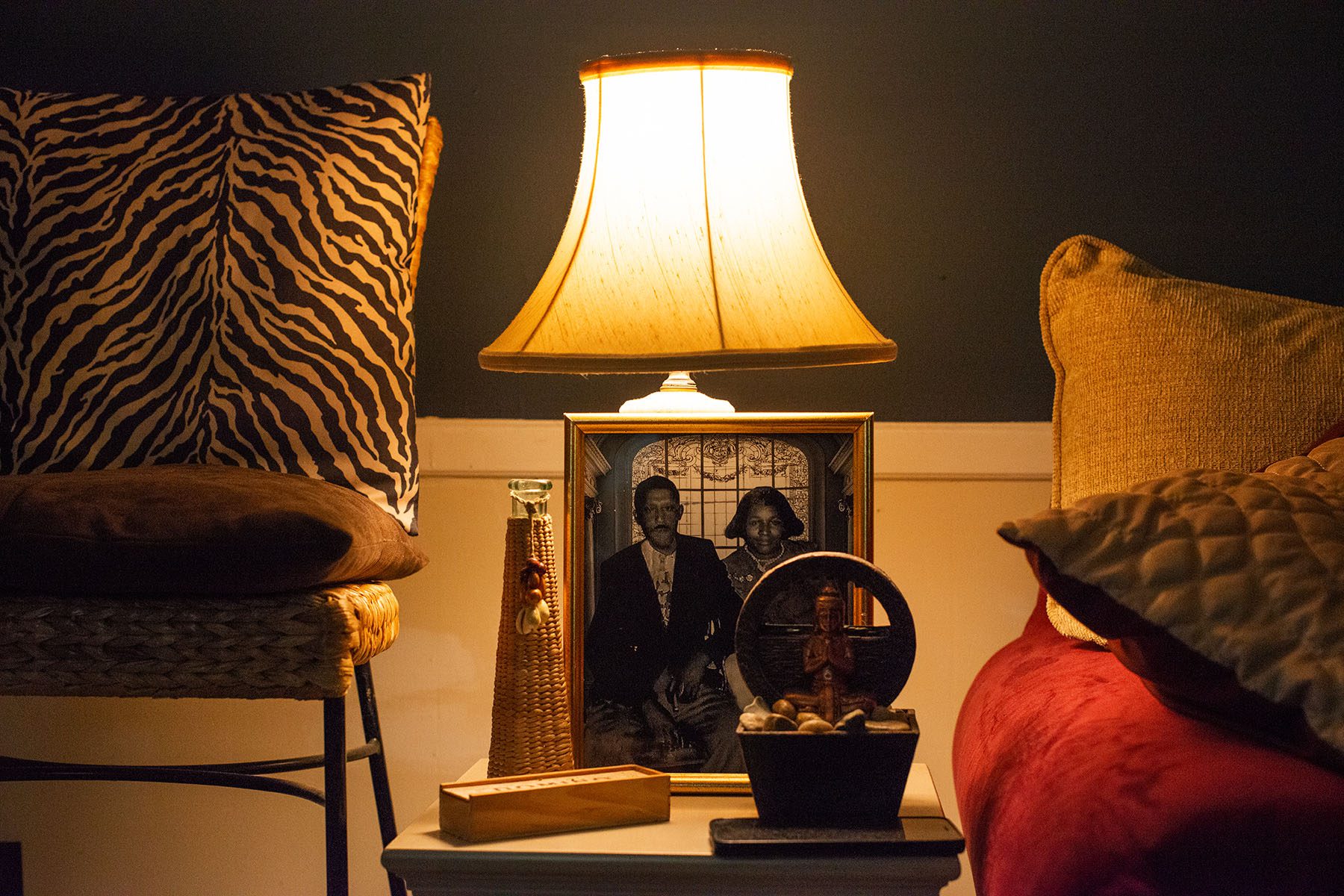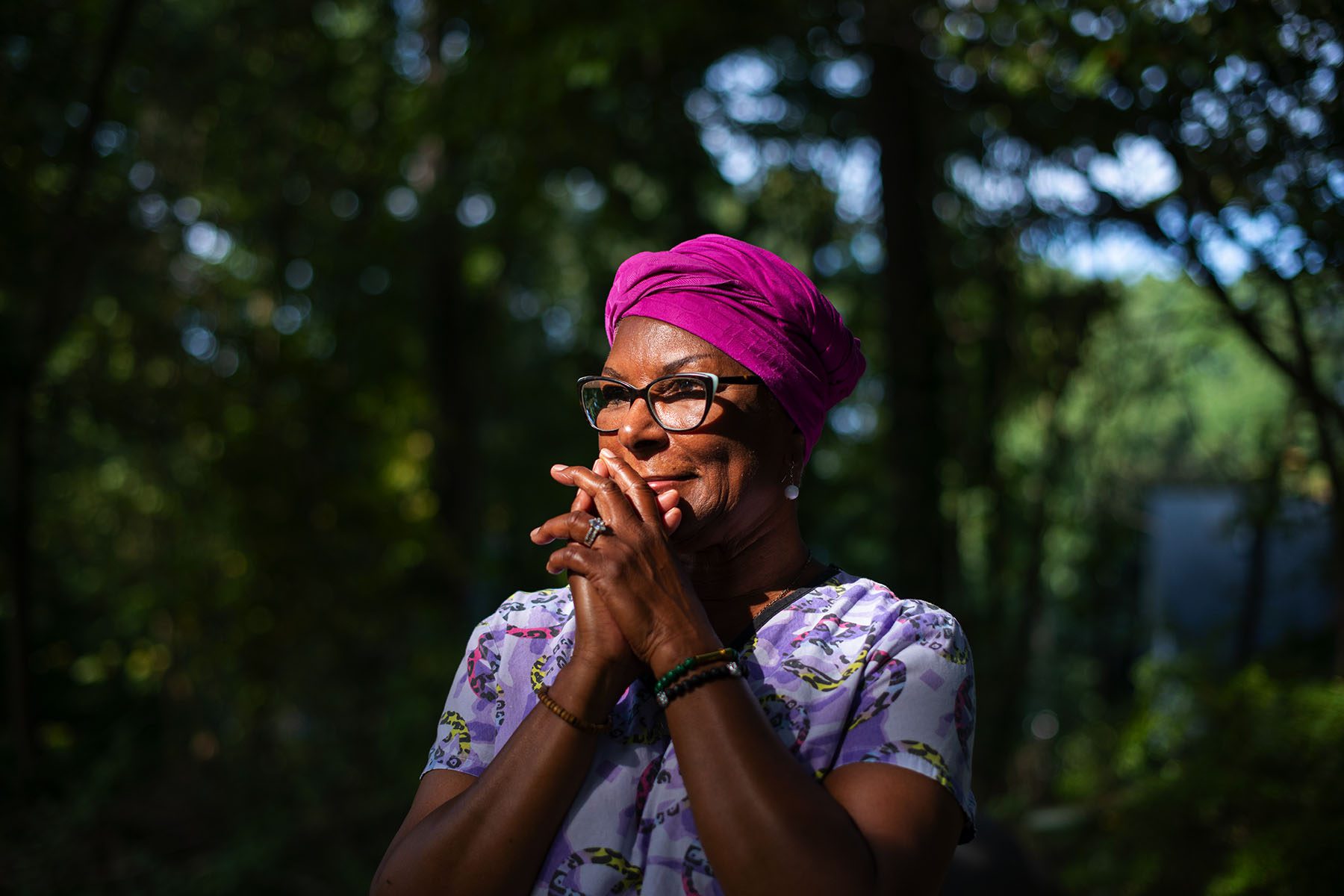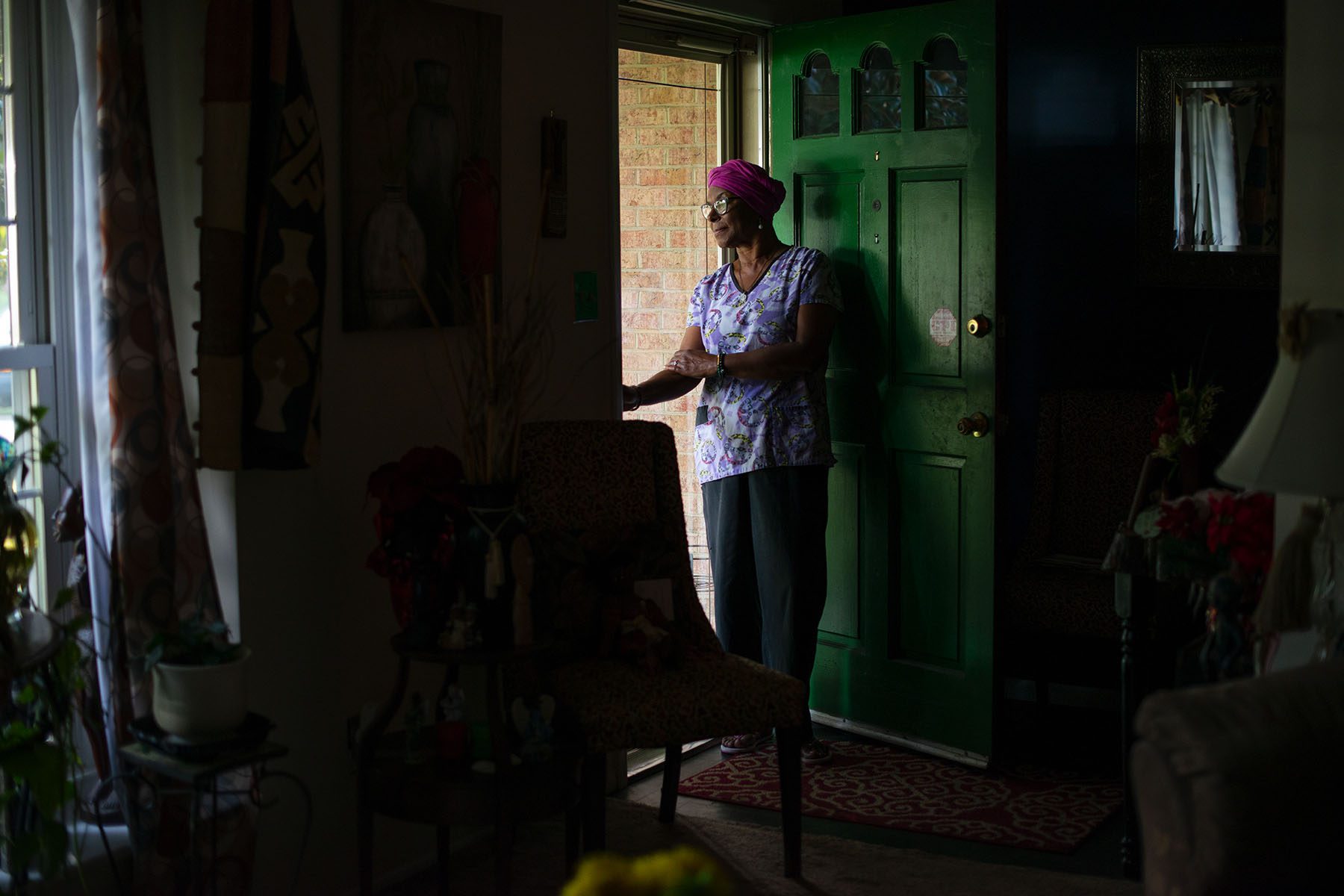For Delores Sobowale, taking care of others is part of her inheritance and her legacy.
Her mother cared for a White family in Jim Crow-era North Carolina for decades before starting her own child care business. Her father worked two jobs as a janitor.
“I don’t know how much she made,” Sobowale said about her mother’s work. “At the time, back then, it couldn’t have been that much. I guess it was enough to help take care of a family. I make probably a thousand times more than what my mother was making.”
Sobowale and her sisters have spent a lifetime taking care of others, both paid and unpaid — of children, their own and others, of her dying parents. At 74, Sobowale is still caregiving for a living, as a home care worker for a 92-year-old woman she’s been with for the past decade.

Something else that has been passed down: low pay and underappreciation for caregivers. Despite the attention their crucial role in the American economy has gotten since the pandemic, home care workers are still woefully underpaid.
“They have to work two and three jobs now to make ends meet, which is not good at all,” said Sobowale, who works for a private caregiving company in Charlotte. “Without us, there will be no work, no economy.”
The low pay and lack of benefits is a legacy of racism baked into President Franklin D. Roosevelt’s New Deal, which left farm and domestic workers — many of them women, many people of color — out of the job and financial protections it offered. As Congress debates President Joe Biden’s proposed $3.5 trillion Build Back Better legislation, which includes funds for home care and provisions that would make it easier for care workers to organize, advocates for caregivers say it’s a chance for the country to show new respect for their work and move toward compensating it fairly.
“These exclusions created the context for it to be OK for caregiving to be treated as less than work,” said Ai-jen Poo, the executive director of the National Domestic Workers Alliance. The reconciliation bill “includes historic investments in the creation of good jobs that will directly benefit Black, Brown and all women working in the care economy for the first time.”
Poo called the bill “the single biggest opportunity of generations to improve the quality of life and work for women of color.”
The legislation has stalled in Congress as lawmakers continue to negotiate the details and the price tag, so it’s unclear whether increased funding for home care will eventually become reality. But advocates see the proposed money as a chance for home care workers to finally earn a living wage and be more fairly compensated for their labor.
Biden has proposed $400 billion to expand access to affordable home- or community- based care for the elderly and people with disabilities. This would happen largely by explicitly funding Medicaid, the public program through which most of these workers are paid. Money would go to the states to boost their spending on home- and community-based care, and the goal of the legislation is that the funds will both expand the availability of care, particularly as America’s population ages, and also increase wages to those who provide it.
According to the White House, wages for home care workers are about $12 an hour, and 1 in 6 live in poverty.
Although the legislation does not explicitly provide better benefits and leave policies, it would support home care workers’ ability to unionize, something that advocates hope would improve conditions. The right to form unions was granted to most workers under the National Labor Relations Act, part of the New Deal that excluded domestic and farm workers who were disproportionately women and people of color.
These workers were also excluded from other parts of Roosevelt’s landmark legislation: the Social Security Act of 1935, which created the country’s retirement program and established unemployment insurance, and the Fair Labor Standards Act, which guaranteed the right to a minimum wage.
Domestic workers have successfully fought to gain minimum wage law protections over time, though many are still left out.
The result was generations of inequality for millions of women of color and the reinforcement of a perception that caregiving work was less valued and important in society. According to the Economic Policy Institute, of the country’s 2.2 million domestic workers, more than 90 percent are women and more than half are women of color. Fewer than 1 in 10 are covered by an employer-provided retirement plan and only 1 in five receive employer-provided health insurance.
“These women were kept poor through state policy, due to the mythology of the home as a private place,” said historian Eileen Boris, author of “Making the Woman Worker: Precarious Labor and the Fight for Global Standards, 1919-2019.”
Boris added that though such perceptions were harming domestic workers, factory workers — many of whom were White and male — were lionized in our national narrative.
“We think of auto workers as having good jobs,” she said. Caregiving was “made into a bad job through public policy that turned home care into workers on the cheap.”
As the COVID-19 crisis crippled nursing homes, home care was highlighted as essential to the American economy. Domestic workers were part of the coalition that delivered Democrats the White House and control of Congress in 2020.
April Verrett, president of California’s SEIU Local 2015 — the country’s largest long-term care union, representing more than 400,000 workers — said her members won’t soon forget if federal lawmakers fail to pass a Build Back Better plan that includes them.
“We don’t have short memories,” said Verrett. “We are talking about the same Black and brown women who made the difference at the ballot box in places like Georgia, and Michigan and Nevada. We made the difference for the folks that we sent to Washington to make the difference for us. And we will think differently next time about how we use our time, our power, our resources in the election cycle, because we need people who are going to be champions for us.”
Administration officials say the pandemic has provided the momentum to push a legislative agenda that emphasizes “human infrastructure” alongside the traditional infrastructure like bridges and roads.
“What we saw in COVID is that these are the women who are the frontline workers,” said White House Gender Policy Council Executive Director Jennifer Klein, who was among several administration officials who have worked closely to advance this legislation.
“Those are women of color, and those jobs have been historically undervalued and underpaid and have their roots in the deep racism and sexism of this country,” Klein said. “It’s no accident that we do not value those jobs today. These are important jobs, jobs that deserve adequate wages, that deserve benefits and worker protections; these are workers who need to have power over their own economic decisions. That’s the opportunity we have now to actually address this long-standing problem.”

As Congress debates the fate of the bill, Sobowale, a member of the National Domestic Workers Alliance, is pushing for a new normal around her life’s work — not only for herself, but for her daughter who has started a house cleaning service and employs women of color, including immigrants.
“We are fighting for the right for them to have the money that they need, for them to provide for children, for their families,” Sobowale said. “Everything they need, they should have it, because they are worth it.”







